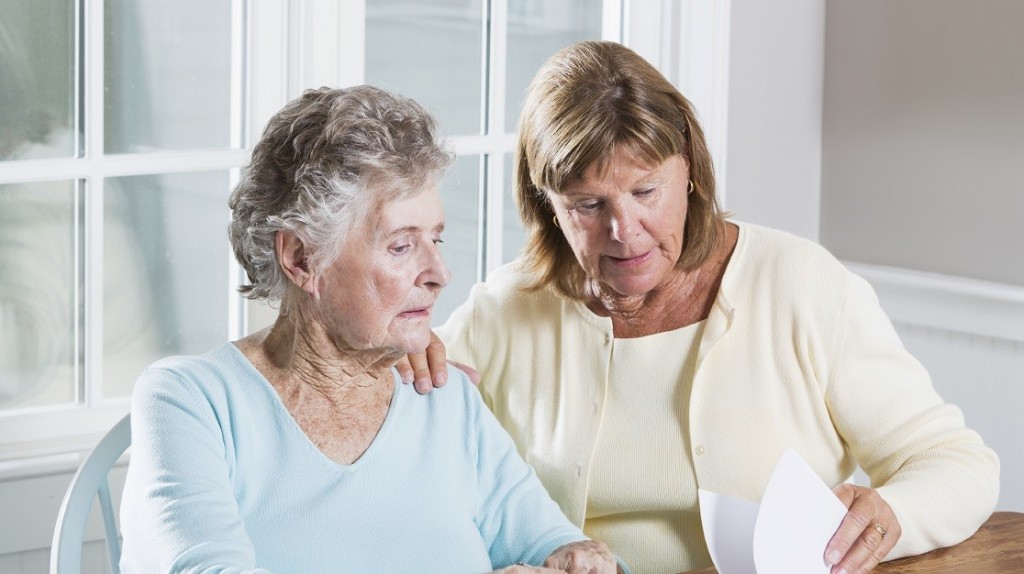
Caregiving can take a toll mentally, emotionally, and physically whether you’re providing hands-on care, managing a paid caregiver, or anything in between. With the pressure of determining a loved one’s care needs and how best to care for them, it’s easy to forget that caregivers need care too. As we honor caregivers during National Family Caregivers Month, take time to look for the signs and symptoms of caregiver burnout.
By Patricia Charles, LMSW, CMC – Aging Life Care Association™ Member
During a recent visit with a friend, I couldn’t help but notice that he was exhibiting some of the classic signs of caregiver stress. Not only do my professional skills equip me with the clinical tools to make this assessment, but my personal experience as a family caregiver for my mother makes me even more sensitive to the issue.
In addition to looking tired, it was clear that he had also lost weight and was not his normal, cheerful self. I made some gentle observations about how he looked a little worn out and asked him if he had started a new diet. Normalizing these difficult experiences allowed him to acknowledge that he was indeed exhausted; he hadn’t been sleeping that much and he was so busy that he found it difficult to make time to eat. He confided that not only was he balancing his own work and commitments, but he was taking a more and more active role in managing his aging mother’s household, hiring and scheduling caregivers, and paying all the bills.
During our conversation, it became clear that this was more than normal caregiver stress and I suggested that he may be suffering from caregiver burnout. He didn’t believe me at first, protesting, “I don’t provide hands-on care for my mother. If anything, I feel guilty that I’m not doing enough.”
Does this sound like you or someone you know?
Many people believe that if they have enlisted help from others in caring for their loved one, they can’t be experiencing caregiver burnout. They may feel guilty since they are not providing the hands-on care. Ironically, guilt is a major source that can contribute to caregiver burnout!
Caregiving can take a toll mentally, emotionally, and physically whether you’re providing hands-on care, managing a paid caregiver, or anything in between. With the pressure of determining a loved one’s care needs and how best to care for them, it’s easy to forget that you need care too.
While stress is a normal part of life, burnout is emotional and functional disengagement caused by cumulative stress. Signs and symptoms of caregiver burnout may include:
- Inability to sleep or broken sleep during the night
- Inability to concentrate – your thoughts seem to drift from time to time
- Sudden bursts of emotion
- Appetite loss or changes in appetite
- Signs of sadness/depression
- Life revolves around caregiving
- You may be a little touchy – more irritable than normal
- You have stop doing the things you enjoy doing
- Decreased contact with friends and others
- Feeling trapped and lack of control
It’s normal to experience these emotions occasionally, but if you find yourself consistently experiencing these signs of burnout you can’t take good care of yourself or your loved one if you don’t take action and seek help.
If you or someone you know is experiencing some of these signs and symptoms, start by talking to someone you trust, such as a close friend, or seek professional advice. Take an inventory of your activities and consider getting re-involved in activities you once enjoyed and are no longer doing. You can also join a caregiver support group in your community or local hospital so you can learn how others cope with the stress and burnout.
Hiring an Aging Life Care Professional™ to provide an unbiased external perspective can help you determine what type of care your loved one needs, identify resources and options, and coordinate interventions you choose while taking some of the pressure off of yourself.
If you are still suffering from the signs of caregiver burnout, it may be helpful to talk with your physician and make sure that you are not suffering from clinical depression. If you have a history of depression, seek professional help immediately.
Taking care of your personal needs will not only help you be a more effective caregiver for your loved one, but will also allow you to enjoy spending time with them outside of your caregiving role.
About the author: Patricia Charles, LMSW, CMC is the Lead Training Consultant with SeniorBridge. She has been a social work professional in nonprofit and philanthropic organizations for the past 30 years and a member of ALCA since 2008. She is a highly skilled Aging Life Care™ Manager, as well as a lecturer and educator. You can email Patricia at pcharles@seniorbridge.com and follow SeniorBridge on Facebook, Twitter, and LinkedIn.
This blog is for informational purposes only and does not constitute, nor is it intended to be a substitute for, professional advice, diagnosis, or treatment. Information on this blog does not necessarily reflect official positions of the Aging Life Care Association™ and is provided “as is” without warranty. Always consult with a qualified professional with any particular questions you may have regarding your or a family member’s needs.
Source: ALCA Blog